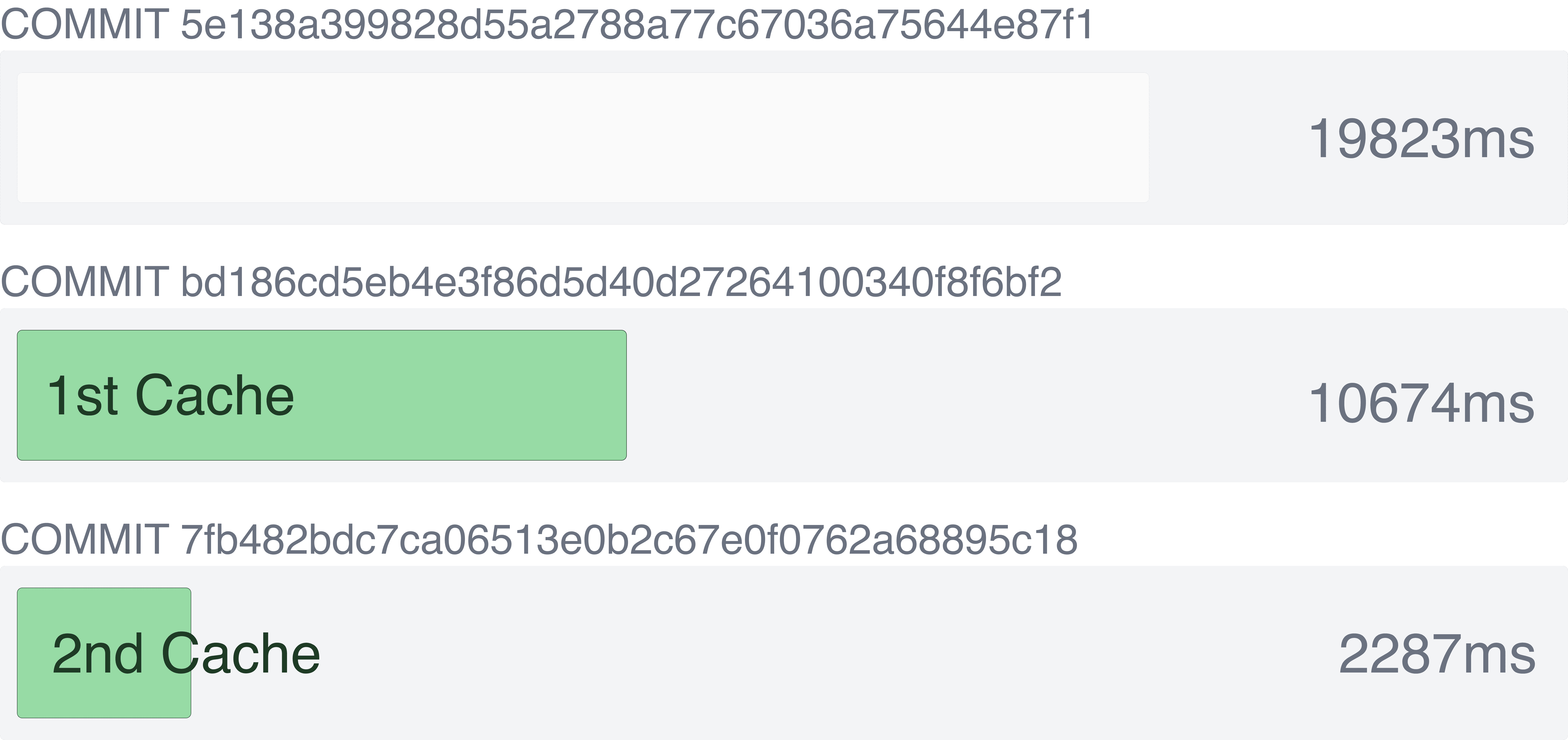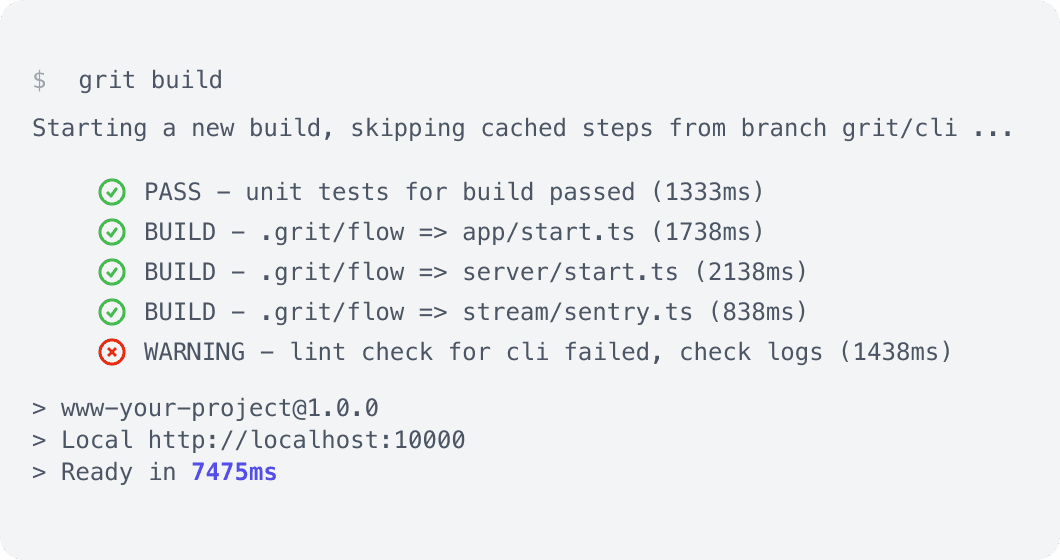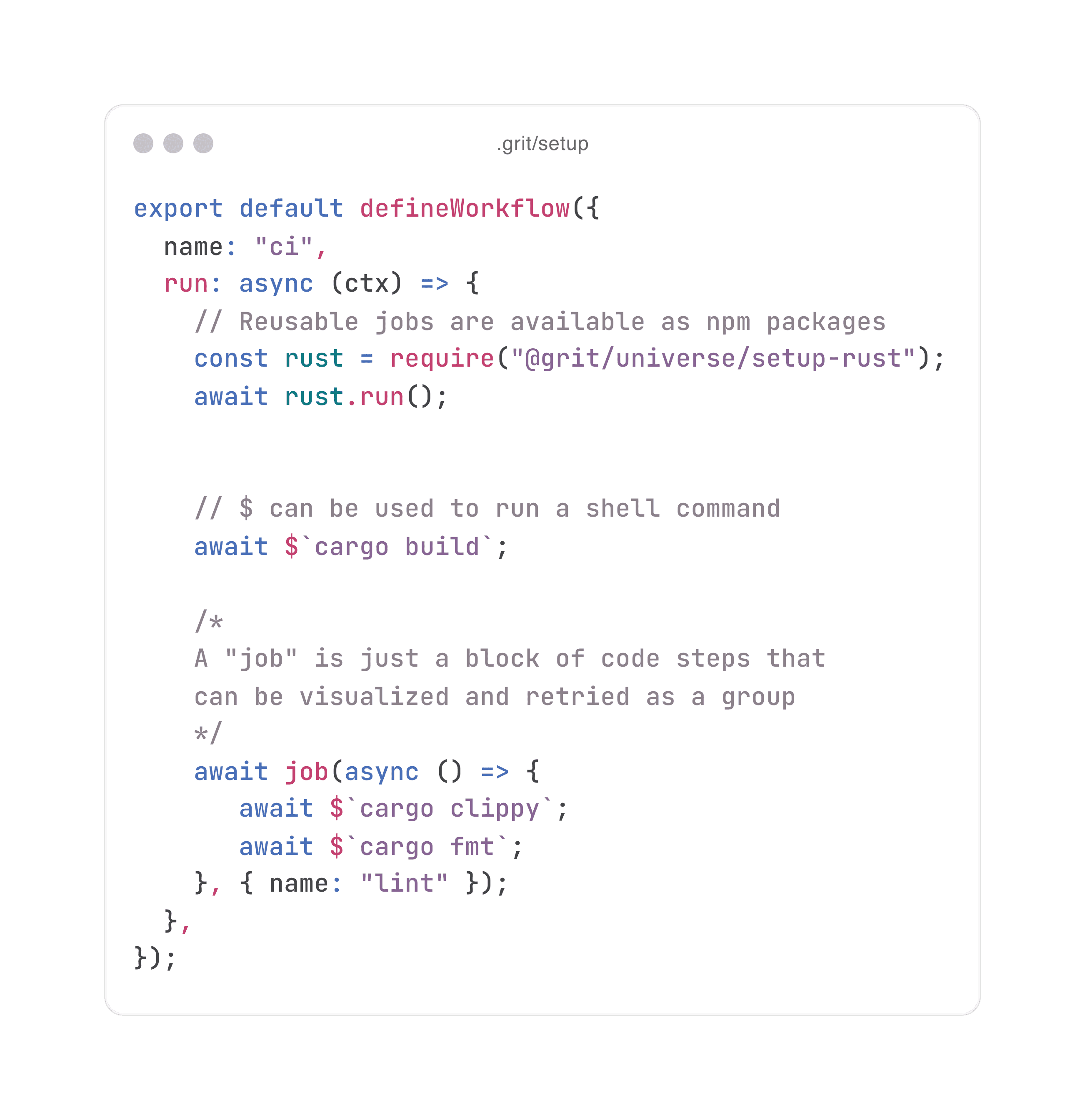Build systems that keep up with you
Build systems that keep up with you
Grit is a new CI/CD platform that makes your pipelines fast and reliable—
without wrestling with custom DSLs or complex container orchestration.
Grit is a new CI/CD platform that makes your pipelines fast and reliable without wrestling with custom DSLs or complex container orchestration.
Grit is a new CI/CD platform that makes your pipelines fast and reliable without wrestling with custom DSLs or complex container orchestration.
Sign up for access
Intelligently cached by default.
Intelligently cached by default.
Intelligently cached by default.
Every workflow starts by intelligently reusing state from previous runs unless you explicitly opt out.
Especially with new package managers, incremental compilers, and smarter test runners this alone can give you much faster workflows with minimal configuration.
Every workflow starts by intelligently reusing state from previous runs unless you explicitly opt out.
Especially with new package managers, incremental compilers, and smarter test runners this alone can give you much faster workflows with minimal configuration.



Local development, global storage.
Local development, global storage.
Local development, global storage.
Eliminate the diff between the scripts used in production and the local dev environment. If it works on your machine, you'll know it works for everyone.
The same workflow should be usable locally by a developer, in CI for automated testing, or in a cloud sandbox by an AI agent.
Eliminate the diff between the scripts used in production and the local dev environment. If it works on your machine, you'll know it works for everyone.
The same workflow should be usable locally by a developer, in CI for automated testing, or in a cloud sandbox by an AI agent.



Write pipelines in TypeScript.
Write pipelines in TypeScript.
Write pipelines in TypeScript.
Using Typescript speeds up your CI/CD dev loop. Get statement completion, real-time type checking, and interactive documentation in your IDE out of the box.
Share code across pipelines and projects
Abstract shared logic into functions
Introduce custom build logic easily
Using Typescript speeds up your CI/CD dev loop. Get statement completion, real-time type checking, and interactive documentation in your IDE out of the box.
Share code across pipelines and projects
Abstract shared logic into functions
Introduce custom build logic easily



Pricing
Pricing
Pricing
MANAGED
$0.10
per build
each build is limited to ten minutes.
SELF-HOSTED
$0.05
per build
no limits on runtime for any build.
FAQ
FAQ
FAQ
How does Grit make builds faster?
Grit uses aggressive caching to reuse old state as much as possible. Most modern tools run "incremental" commands much faster when they can reuse previous work, so Grit makes this the default.
How can I control caching?
Every step in the pipeline can specify a replay command which is run instead of the main step when you are reusing previous state. For example, on the first execution (with no state) you want to run git clone but subsequent replays just run git pull. When a step is not cacheable, you can specify that it should the cache.
Is Grit different from dagger.io?
Dagger.io lets you write pipelines in any language, and asks you to use existing build providers to run the builds. Grit has a custom SDK in Typescript for it's own build system which allows us to make caching optimizations that make Grit faster.
How can stateful builds be reliable?
While Grit uses aggressive caching by default, Grit also periodically runs full (stateless) executions in the background. These are slower and intentionally should not block your merge queue, but help to validate that no errant state has crept into your workflows.
How does Grit make builds faster?
Grit uses aggressive caching to reuse old state as much as possible. Most modern tools run "incremental" commands much faster when they can reuse previous work, so Grit makes this the default.
How can I control caching?
Every step in the pipeline can specify a replay command which is run instead of the main step when you are reusing previous state. For example, on the first execution (with no state) you want to run git clone but subsequent replays just run git pull. When a step is not cacheable, you can specify that it should the cache.
Is Grit different from dagger.io?
Dagger.io lets you write pipelines in any language, and asks you to use existing build providers to run the builds. Grit has a custom SDK in Typescript for it's own build system which allows us to make caching optimizations that make Grit faster.
How can stateful builds be reliable?
While Grit uses aggressive caching by default, Grit also periodically runs full (stateless) executions in the background. These are slower and intentionally should not block your merge queue, but help to validate that no errant state has crept into your workflows.